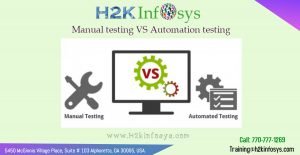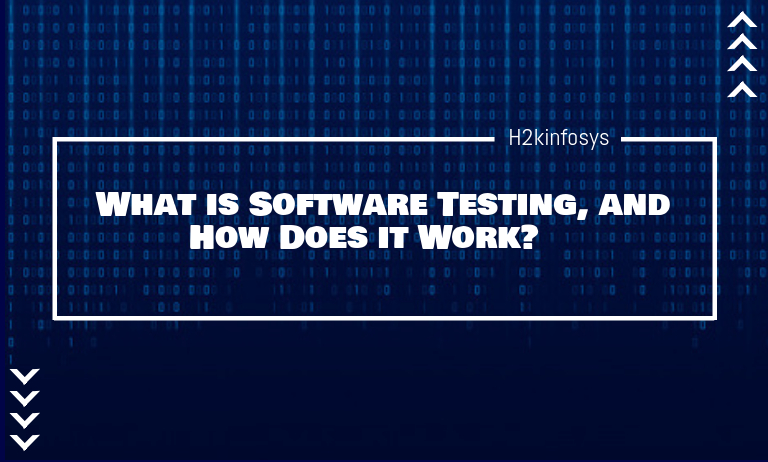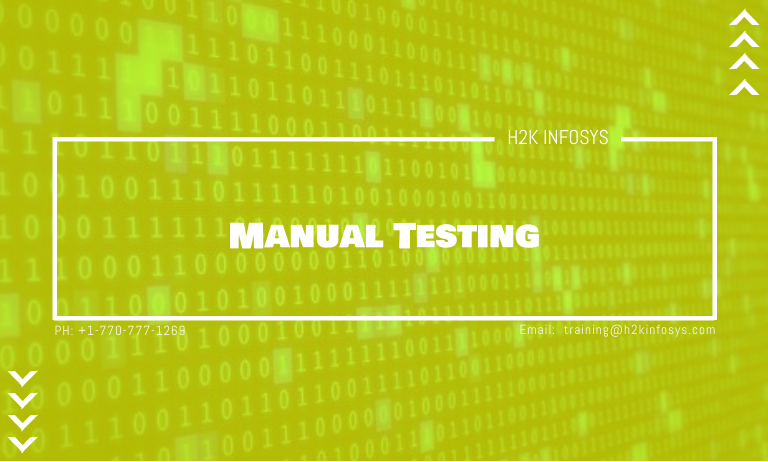Introduction
A Business Analysts is a person in an organization who has been carved out from the Systems Analyst role. Now, a System Analyst is more of a Technical Analyst and works on the basis of business requirements gathered by a Business Analyst. A Business Analyst is responsible for requirements management and managing customer expectations.
The need for a Business Analysts has been due to the fact that based on research reports, the top most reason for failure of multiple software projects has been due to getting incorrect and incomplete requirements of a client or a project.
It has been found that technical jargon used by technology teams can often confuse lay users. If a Business Analyst comes from a technical background, they are also expected to possess additional attributes such as strong communication skills and a solid understanding of the tools and methodologies used in Business Analysis. Enrolling in an Online Course Business Analyst program can help bridge this gap by equipping professionals with both technical proficiency and essential soft skills needed to translate complex requirements into clear, actionable insights.
Business Analyst Roles:
The role of a Business Analysts varies greatly depending on the nature of the organization. A Business Analyst might have different roles in different organizations based on his responsibilities:
- Business Analyst
- Requirement Analyst
- Functional Consultant
- Account/Relationship Manager
- Post-sales Analyst
- System Analyst
- Functional Analyst

Business Analysts Skills and Competencies:
To thrive in today’s dynamic business environment, a Business Analyst must possess a well-rounded mix of technical expertise, analytical capabilities, and interpersonal skills. At the core, strong analytical and problem-solving skills allow BAs to identify patterns, interpret data, and develop actionable insights. Excellent communication skills both written and verbal are essential for translating complex technical details into understandable business language and facilitating collaboration between stakeholders.
On the technical side, proficiency in tools such as Excel, SQL, Power BI, Tableau, and JIRA is increasingly expected. A solid understanding of requirements gathering, process modeling, and documentation (using BRDs, FRDs, or user stories) is critical for successful project execution. Familiarity with Agile and Scrum methodologies enhances a BA’s ability to function effectively in fast-paced development environments.
Equally important are soft skills like critical thinking, attention to detail, adaptability, and time management. Business Analysts must also be strategic thinkers, capable of aligning technical solutions with overarching business goals.
Ultimately, a successful Business Analyst is both a thinker and a communicator able to navigate complexity, build consensus, and drive business value. Enrolling in a business analyst training and placement program can help aspiring professionals master these competencies and succeed in a competitive job market.
Logical and Analytical Skills
Logical and analytical skills are critical for solving problems, making decisions, and understanding complex systems. These skills allow individuals to evaluate information objectively, identify patterns, and draw meaningful conclusions. Logical thinking helps break down problems into manageable parts, while analytical thinking enables data interpretation and the recognition of trends or inconsistencies. Together, they form the foundation for sound judgment and strategic planning in both technical and non-technical roles. Professionals with strong logical and analytical skills can assess situations methodically, troubleshoot issues, and create effective solutions. These skills are especially vital in roles such as business analysis, software development, data science, and project management. They also improve efficiency and accuracy in decision-making processes. Employers value these capabilities because they contribute to innovation, risk management, and achieving business goals. Developing logical and analytical skills often involves practicing problem-solving exercises, learning data analysis tools, and engaging in structured thinking activities.
Technical Skills
A Business Analysts must have technical skills to interpret business requirements into technology language correctly to be understood by technology teams/stakeholders. Technical skills help a Business Analyst to bridge the gap between its business problems and technical solutions. A Business Analyst with strong technical skills has the ability to develop the technical artifacts from business requirements.

A Business Analyst having technical skills gets involved in the process of analyzing, transforming and finding resolution finally to the existing business problems using technology.
Leadership Skills
A Business Analyst has different responsibilities in an organization. One of the major responsibilities of a Business Analyst is to be a successful leader. A successful Business Analyst is the one who has tremendous leadership skills and is capable of managing a team of Business Analysts in delivering the requirements as per the business rules specified. Strong leadership skills allow a Business Analyst to manage the whole requirements process that involves relationship building with multiple stakeholders who are the major source of the business or project requirements.
Leadership skills make a Business Analyst more oriented towards the project delivery and allow them to be responsible for resolving everything from documentation to interpersonal issues. A Business Analyst with strong leadership skills is able to manage the project scope and also to analyze the updates for any major changes in project schedule.
Communication Skills
A Business Analyst should have excellent communication skills to communicate at all levels for successful project execution and delivery. A Business Analyst should be able to communicate each and every stakeholder about any updates each and everywhere to be clear. He should be able to deliver his message clearly that is easy to apprehend and simple to understand.
A Business Analysts with effective communication skills avoids technical jargons and makes sure that the project updates, status reports are on the top with clear and precise action items. A Business Analyst with good communication skills avoids using vague sentences and makes clear objectives. For example, instead of using a sentence like “We would need to discuss about it as soon as possible”, he specifies a particular delivery date and says “To meet the project deadline, we need to speak today at a particular time”. The communication can be in any form that includes:
Spoken Communication:
Spoken communication is the ability to convey thoughts, ideas, and information clearly and effectively through speech. It plays a vital role in almost every professional and personal interaction. Whether it’s presenting to a team, participating in meetings, negotiating with stakeholders, or interacting with clients, strong spoken communication ensures that messages are understood and intentions are conveyed appropriately.
Effective spoken communication involves more than just speaking fluently; it requires clarity, tone modulation, confidence, and active listening. A good communicator adjusts their language and tone based on the audience, ensuring the message is relevant and respectful. Listening attentively, responding thoughtfully, and maintaining eye contact are all essential aspects of successful verbal exchanges.
In professional settings, spoken communication enhances teamwork, strengthens relationships, and boosts productivity. It helps resolve conflicts, promote collaboration, and influence others positively. For roles in business analysis, project management, sales, and customer service, this skill is especially critical.
Improving spoken communication often involves practice, feedback, and techniques such as joining speaking clubs, participating in group discussions, or engaging in public speaking activities. Ultimately, mastering spoken communication builds confidence, enhances leadership potential, and contributes significantly to career growth and professional success.
Written Communication:
A Business Analysts has to be well communicative in his emails, requirements and surveys. However it is a great challenge for a Business Analyst to make the requirements simple to be understood by the audience, written communications offer the Business Analyst capability of writing a pile of information in an uncomplicated form effortlessly.
Listening Skills
Listening skills are a fundamental component of effective communication, playing a crucial role in both personal and professional environments. Unlike hearing, which is passive, listening is an active process that involves fully concentrating, understanding, responding, and remembering what is being said. Strong listening skills help build trust, avoid misunderstandings, and foster productive relationships.

Good listeners pay attention to verbal cues and non-verbal signals, such as tone of voice and body language. They avoid interrupting, provide feedback, and ask clarifying questions when needed. These behaviors demonstrate respect and engagement, making the speaker feel valued and understood.
Improving listening skills requires practice and mindfulness. Techniques include maintaining eye contact, taking notes, avoiding distractions, and summarizing key points to confirm understanding. By developing strong listening abilities, individuals can enhance their relationships, make better decisions, and perform more effectively in team environments. Ultimately, listening is not just about receiving information it’s about creating meaningful connections.
Knowledge of Business and Technology Domains
A Business Analyst is required to have good knowledge of business and technology domains to clearly apprehend the business needs. If a Business Analyst possesses good knowledge of domain and its associated business processes, he will be able to yield the positive results and accomplish the main objectives.
From a Business Analyst standpoint, there are a few specific domains for which Business Analysts are always desired and these are as follows:
- E-commerce
- Telecommunications
- Banking, Financial Services and Insurance
- Airlines
- Manufacturing
Certifications:
Earlier, organizations started hiring professionals such as MBAs, Chartered Accountants who possess good understanding of business and can be molded into Business Analysts. MBAs from all specializations have been in demand for Business Analyst role; however few organizations have different criteria of certifications for Business Analyst role in their organizations.
The International Institute of Business Analysts (IIBA) is an authoritative body that certifies Business Analyst practitioners. The IIBA has identified a set of knowledge areas that a Business Analyst must bring to his practice. There are 4 important certifications a Business Analyst should do:
ECBA (Entry Certificate in Business Analysis)
ECBA (Entry Certificate in Business Analysis) is level 1 certification for Business Analysts that encloses key fundamental knowledge and concepts to understand how to approach business analysis based on BABOK. This is the very basic course of business analysis and is designed for the following individuals:
- Students looking for a new career
- Professionals looking for new opportunity in Business Analysis
- Individuals entering to the Business Analysis Profession
Eligibility Criteria for ECBA (Entry Certificate in Business Analysis)
The eligibility criteria for ECBA (Entry Certificate in Business Analysis) certification are as follows:
- Experience required – No
- Knowledge Area Expertise – No
- Professional Development Training Required – Yes, Minimum 21 Hours in last 4 years
CCBA (Certification of Capability in Business Analysis)
CCBA (Certification of Capability in Business Analysis) is a level 2 professional certification that enables Business Analysis Practitioners to gain formal recognition for their skills and expertise. This certification allows Business Analysts to demonstrate their capability to take on greater responsibilities within an organization. Based on The BABOK (Business Analysis Body of Knowledge) Guide, the CCBA is a valuable step for professionals pursuing a Business Analysis Online Certification to advance their careers and validate their proficiency in core BA practices.
To earn CCBA (Certification of Capability in Business Analysis), a Business Analyst has to be knowledgeable in six areas defined by The BABOK (Business Analysis Body of Knowledge) Guide.
Eligibility Criteria for CCBA (Certification of Capability in Business Analysis)
The eligibility criteria for CCBA (Certification of Capability in Business Analysis) certification are as follows:
- Experience Required in Business Analysis – Yes, minimum 3750 in line with The BABOK (Business Analysis Body of Knowledge) Guide in last 7 years
- Knowledge Area Expertise – Yes, minimum 900 hours in two areas each of six knowledge areas OR Minimum 500 hours in four areas each of six knowledge areas
- Professional Development Training – Yes, minimum 21 hours in the past four years
- References – Two references from a career manager/client OR a CBAP (Certified Business Analysis Professional) recipient
CBAP (Certified Business Analysis Professional)
Certified Business Analysis Professional (CBAP) is a level 3 professional certification that is given to those candidates having substantial experience in Business Analysis.
- Eligibility Criteria for CBAP (Certified Business Analysis Professional)
The eligibility criteria for CBAP (Certified Business Analysis Professional) certification are as follows:
- Experience Required in Business Analysis – Yes, minimum five years with 7500 hours recorded Business Analysis activities against Business Analyst tasks and projects.
- Knowledge Area Expertise – Yes, minimum four of six knowledge areas
- Professional Development Training – Yes, minimum 35 hours in the last four years
- References – Two references from a career manager/client OR a CBAP (Certified Business Analysis Professional) recipient
CBATL (Certified Business Analysis Thought Leader)
CBATL (Certified Business Analysis Thought Leader) is a level 4 professional certification for Business Analysts.This certification is for the individuals who have more than 10 years of work experience in Business Analysis.
Eligibility Criteria for CBATL (Certified Business Analysis Thought Leader)
The eligibility criterion for CBATL (Certified Business Analysis Thought Leader) certification is as follows:
- Experience Required in Business Analysis – Yes, minimum ten years with 15000 hours of experience
Business Analyst Jobs and Careers:
A Business Analyst has been in demand for the past more than a decade and has become very popular in the industry. In organizations a need emerged to understand and analyze where the money should be spent for making profits in the business. Multiple stakeholders wanted someone having expertise in specific areas to be able to explain them how can they raise the company profits. Thus, the Business Analyst came to existence.

Today, in the industry from the Business Analyst’s role, it is evident that he has great power to influence how the solution is visualized at the customer’s end. A Business Analyst is capable enough to authorize how the solution is designed and implemented on the technology side.
A Business Analyst can also move into more direct customer facing role as below:
- Pre-sales Business Analyst
- Sales and Marketing Consultant
- Consultant
- Account Manager
- Relationship Manager
- Project Leader
In a nutshell, Business Analysts are increasingly being hired in multiple organizations since the inception of a need for the requirements management and managing customer expectations. Thus, a Business Analyst must have sound knowledge of business domain and specialize in certain functional areas.
From the reporting standpoint, a Business Analyst generally reports to the Business Analyst Manager or the Business Analyst Head. A Business Analyst also maintains a reporting relationship with the Business Analyst Head and is accountable to the project leader for the assignments they handle. Enrolling in a Business Analyst Online Course can provide a clearer understanding of these organizational structures and reporting responsibilities, helping aspiring analysts navigate their roles more effectively.
A Business Analyst plays different roles in different organizations. The skills and competencies required to carry out a Business Analyst role include:
- Logical and analytical skills, technical, leadership, communication and listening skills.
- Knowledge of the business, management and technology domain.
- Knowledge of Software Development Life Cycle and formal tools used for analysis and documentation.
- Ability to communicate with stakeholders and project teams.
- Ability to organize and analyze the large amount of data and information collected from multiple stakeholders.
- Ability to focus on stakeholders’ needs and envision a suitable solution for the problem.
- Ability to sit in the client’s shoes to understand his needs from his perspective and bring them to the surface.
Having understood the backdrop of a Business Analyst evolving role, an organization needs to understand the tasks and knowledge areas of a Business Analyst to succeed that include:
- Requirement Planning and Management
- Requirement Gathering
- Requirement Analysis and Documentation
- Requirement Communication
- Requirement Implementation


























